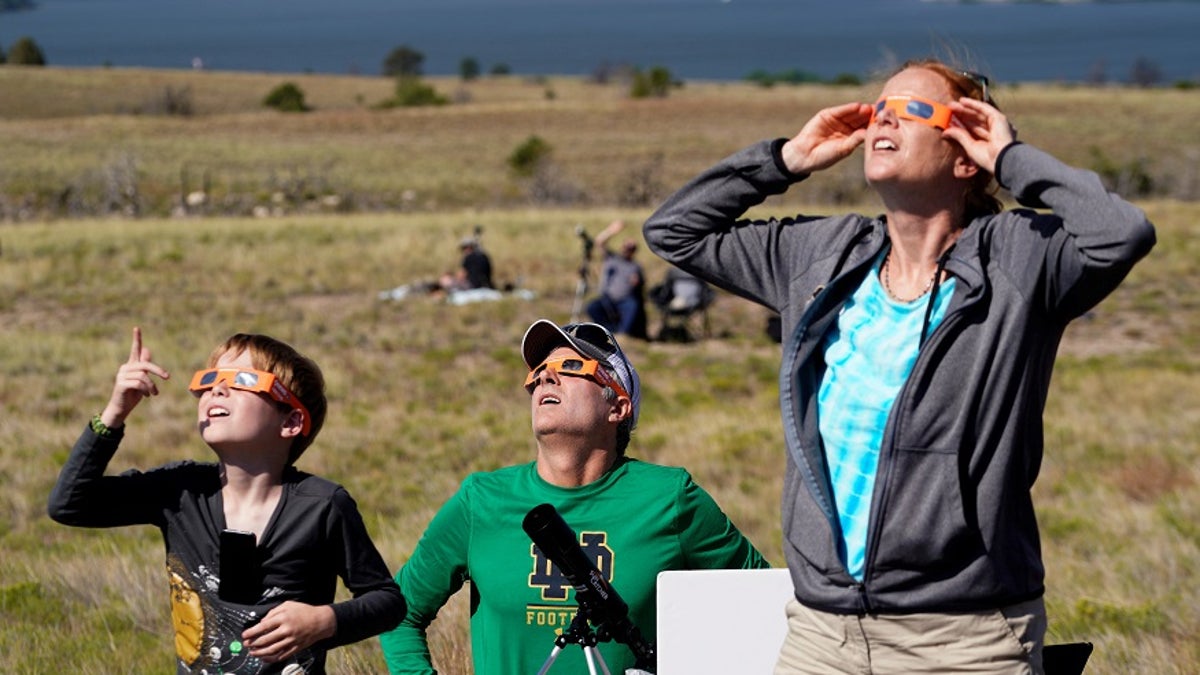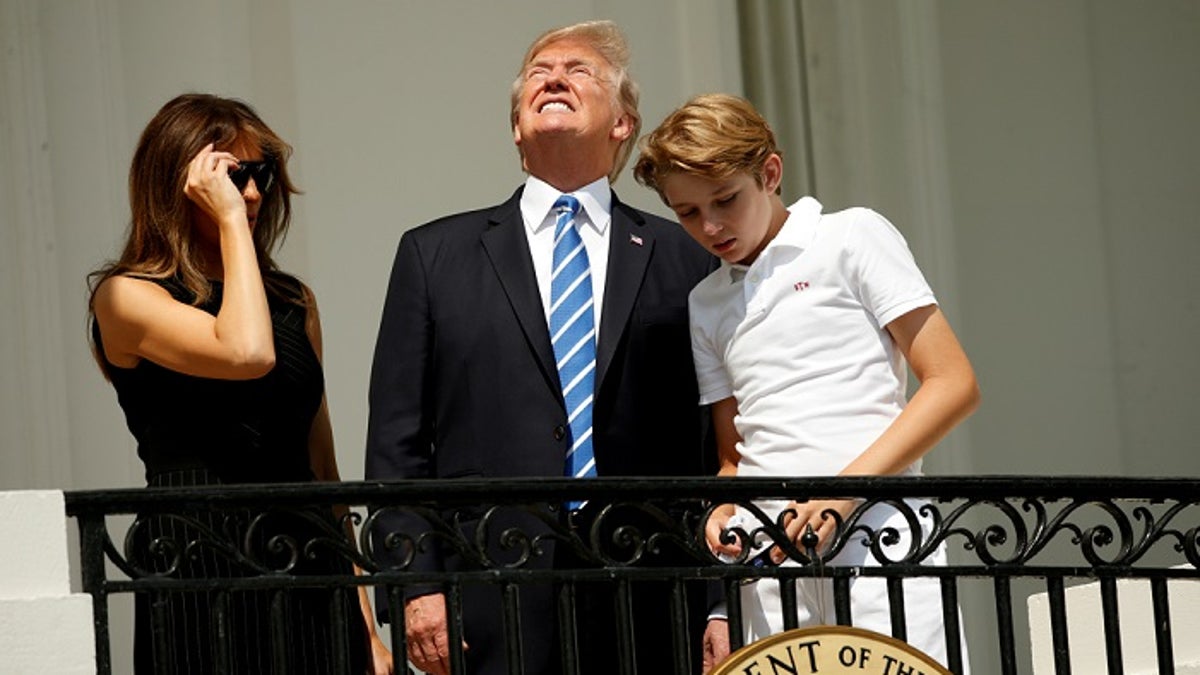
A California man, who is not pictured here, reportedly suffered significant vision loss after looking at eclipse with bogus glasses. (Reuters)
A California man has lost some of his vision after looking at last week’s solar eclipse with glasses that were said to be bogus.
Dr. Raj Maturi, an ophthalmologist at the Midwest Eye Institute in Indianapolis, Ind., who tracked eclipse cases, told the Indy Star that the man suffered “significant vision loss” after watching the eclipse while wearing glasses that were mislabeled as appropriate eyewear.
“The damage to his retina was in the shape of an eclipse,” Maturi said.
SOUTH FLORIDA TEACHER CLAIMS MOLDY CLASSROOMS CAUSING ILLNESSES
Maturi said two other patients had experienced damage after looking at the eclipse without eyewear but they did not watch long enough for permanent damage. However, if the patients had watched the eclipse a few seconds more, then they could have received long-lasting damage to their vision, the doctor said.
“The cells are in a middle of a shock from so much energy coming to the eye,” Maturi said. “Unfortunately there’s no treatment that works. If you’re literally burning something, it’s impossible to bring it back to life.”

Without his protective glasses on, U.S. President Donald Trump looks up towards the solar eclipse while viewing with his wife Melania and son Barron at the White House in Washington, U.S., August 21, 2017. REUTERS/Kevin Lamarque TPX IMAGES OF THE DAY - RC12184285B0 (REUTERS)
Maturi said he also received a number of calls from patients who were worried about losing their eyesight after the eclipse, but said there was no need for concern.
“There were a lot of misconceptions about it,” Maturi said. “Just being outside is not an issue. It’s staring at the sun. Looking at an eclipse is no different than looking at the sun on a non-eclipse day.”
PROSTATE CANCER SYMPTOMS AND WARNING SIGNS
President Trump was photographed staring at the eclipse without his protective eyewear but there was no immediate information that he suffered any vision loss. Maturi said his age could be a factor with avoiding any damage.
“The eyes of younger people tend to have clearer lenses, while their grandparents' eyes may have cloudier lenses, which may block the glare a tad but not offer anywhere near full protection,” Maturi said.
